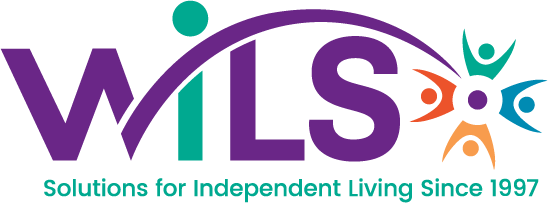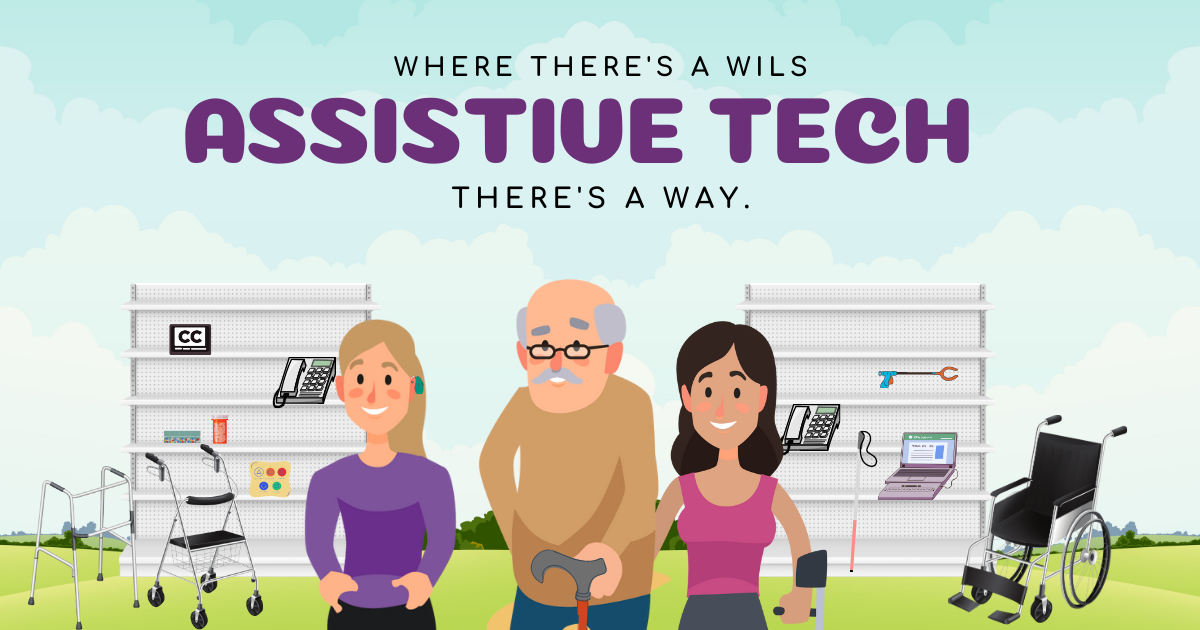What is Assistive Technology?
Assistive technology (AT) is a term used to include assistive , adaptive, and rehabilitative equipment for people with disabilities and also includes the process used in selecting, locating, and using them. Assistive technology can also include durable medical equipment.
Assistive Technology and Equipment Examples
- Mobility aids include wheelchairs, scooters, walkers, canes, prosthetic devices. Lightweight, high-performance wheelchairs have been designed for organized sports, such as basketball, tennis, and racing.
- Cognitive assistance devices like computer or electrical assistive devices to help people function following brain injury
- Computer software/hardware examples include voice recognition programs, screen readers, screen enlargement applications help people with mobility and sensory impairments
- Classroom assistive devices like automatic page-turners, book holders, adapted pencil grips
- Hearing assistance such as hearing aids, amplifiers, typing telephones and closed captioning
- Augmentative/Alternative Communication allows individuals who cannot speak or whose speech is not understood by others to communicate. This includes picture boards, voice output communication devices, software and computers.
- Visual Aids such as large-print books, books on tape, magnifiers, talking computer software and braillers
- Wheelchairs are tools. People are not confined to their wheelchair; a person in a wheelchair can get around as quickly as anyone can walking. Wheelchairs have distinct styles for special purposes, such as basketball, racing or rugged trail use. Standing chairs act as normal manual chairs but also help the rider rise to a standing position. Selecting the right chair, especially for a first-time user should work with an occupational therapist that has experience with various kinds of wheelchairs.
- Barrier Modifications to the community may include buildings, businesses and workplaces can remove or modify barriers with ramps, automatic door openers, grab bars, and wider doorways.
Who pays for assistive technology?
The answer depends on the technology, the use, and the user. Many kinds of AT may cost you little or nothing, even for some very expensive items. Some examples:
- School systems pay for general special education learning materials as well as technology specified in an IEP.
- Government programs (Social Security, veteran’s benefits, or state Medicaid agencies) pay for certain assistive technology if a doctor prescribes it as a necessary medical device.
- Private health insurance pays for certain assistive technology if a doctor prescribes it as a necessary medical or rehabilitative device.
- Rehabilitation and job training programs, whether funded by government or private agencies, may pay for assistive technology and training to help people get jobs.
- Employers may pay for assistive technology that is a reasonable accommodation to enable an employee to perform essential job tasks.
- Show Me Loans are available for Missourians who need to finance their adaptive modifications and assistive devices through Missouri Assistive Technology.
What is the Telecommunication Access Program?
Missouri’s Telecommunication Access Program (TAP) provides equipment to qualifying individuals who have difficulties using the phone because of a disability. Having Trouble Hearing on the Telephone? WILS may be able to help. The Missouri TAP for Telephone program is designed to provide a full range of adaptive equipment to meet the needs of individuals with all types of disabilities. The TAP program is administered by Missouri Assistive Technology. WILS TAP is a certified demonstration site and has TAP certified agents who will demonstrate the TAP phones for your specific needs and ensure the TAP phone will meet your communication goal and assist qualified individuals with the application process. Once the demonstration and application are completed and approved your TAP phone will be delivered to your residence. Individuals may qualify for a new TAP phone every four years, during this period TAP phones will be under warranty for repairs.
Am I eligible for the Telecommunication Access Program?
- You must be a Missouri resident
- You must have a hearing, visual, or mobility impairment
- Have telephone service in your home
- Have an annual household income under $60,000 for two people; with $5,000 being added for each additional dependent.
What does the Telecommunication Access Program provide?
TAP provides adaptive equipment and technology includes voice carry over phones, phones for hearing carry over, signaling devices, amplified phones, and hands-free phones. The program does not provide devices such as hearing aids and augmentative communication devices.
How do I apply for and select the adaptive equipment?
Contact a WILS TAP Specialist by calling 855-945-7929 to schedule an appointment for an assistive technology demonstration.
Resources
Call 855-945-7929 to schedule an AT demo to find the equipment that best meets your needs.
Missouri Assistive Technology increases access to assistive technology for Missourians with all types of disabilities, of all ages. Their Show Me Loans offer a low interest rate (2%-4%) based on income.
Heartland Medical Equipment serves the needs of mid Missouri
What is Universal Design?
Universal design means products and buildings are designed to ensure they are accessible and usable by virtually everyone, including individuals with disabilities. There are laws making schools, public transportation, housing, public accommodations and sidewalks fully accessible.
For more information on Universal design, visit The Center for Universal Design at North Carolina State University.


